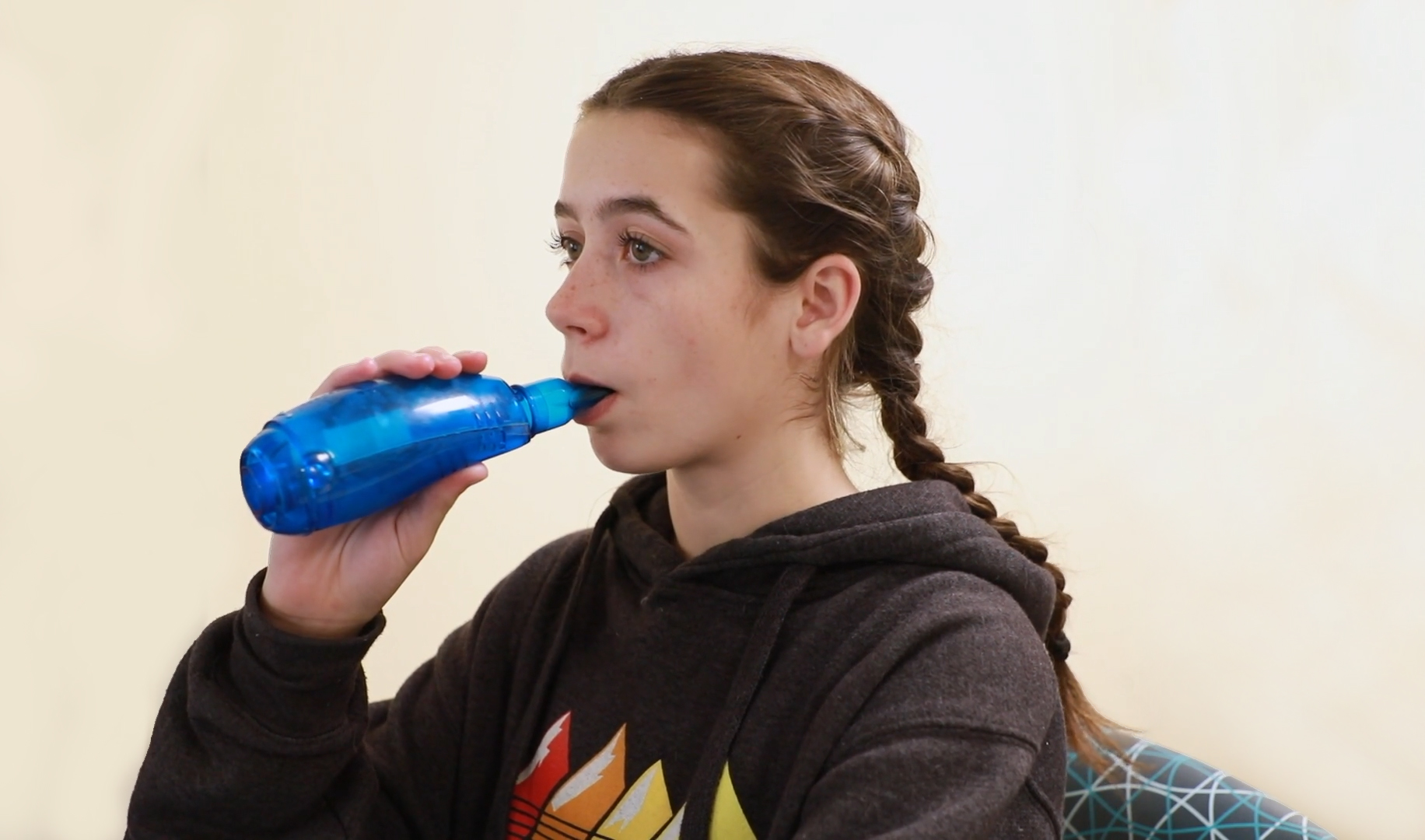CFTR protein
Cystic fibrosis (CF) is an inherited genetic disease. It is caused by a change or mutation in the gene that produces the cystic fibrosis transmembrane conductance regulator (CFTR) protein. There are many different mutations that cause CF but the most common is an F508del mutation. People who are born with CF inherit a copy of the mutated gene from each of their parents. Having two copies of the genetic mutation causes CF.
The mutation to the gene causes the CFTR protein to not work well. The job of the CFTR protein is to move chloride (found in salt) from the inside to the outside of a person’s cells. The movement of chloride also helps control the movement of water into and out of cells. When the CFTR protein is not working well, the balance of salt and water is disturbed, and mucus that is produced in the body becomes much thicker and stickier.
CFTR modulators
CFTR modulators are medications that partly restore the function of the CFTR protein and can benefit most people with CF. Instead of treating only the symptoms, CFTR modulators target the defect in the protein caused by the specific genetic mutations that cause CF. The restored protein helps to control the flow of chloride and water from the inside to the outside of the cell resulting in mucus that is less thick and sticky. The type of CFTR modulator medication must be matched to the specific CFTR genetic mutation that a person with CF has. There are four CFTR modulators available in Canada for people with certain genetic mutations:
- Trikafta (elexacaftor/tezacaftor/ivacaftor)
- Symdeko (tezacaftor/ivacaftor)
- Orkambi (lumacaftor/ivacaftor)
- Kalydeco (ivacaftor)
The first step in knowing whether you will benefit from taking these medications is to know what CF mutations you have. You can ask your CF team about this.
Trikafta
Trikafta has been approved for people with CF who are 2 years of age and older and who have at least one copy of the F508del mutation. This accounts for 90% of Canadians with CF. For children 6 years of age and older, the medication comes in a tablet form, which is swallowed. Taking Trikafta will benefit people living with CF by reducing the stickiness of mucus in the lungs and slowing down the damage that mucus creates in the lungs over time. Because CF can look different from person to person, the response to Trikafta or other CFTR modulators will vary. It is important that while taking these medications, to note any side effects and speak with your CF team.
Before starting Trikafta
Tell your doctor about all the medicines you take, such as prescription and over-the-counter medicines, vitamins and herbal supplements. Trikafta may affect how other medications work and other medications may affect the way Trikafta works. Keep a list of your medications so you can discuss this with your health-care team. You should avoid food or drink that contains grapefruit when taking Trikafta.
Taking Trikafta
It is important for you to:
- take your CFTR modulator every day, in the morning and in the evening.
- take your CFTR modulator with a meal or snack that contains fat. Aim to eat a minimum of 5 to 10 g of fat when you take a CFTR modulator. Fat helps with the absorption of the medication.
- continue to take your pancreatic enzymes as prescribed by your CF team.
- continue to carry out your airway clearance and nebulizations as prescribed by your CF team.
Side effects of Trikafta
When you start Trikafta, you will be monitored closely for possible side effects and reactions and this may require extra tests.
The most common side effects include:
- headache
- upper respiratory tract infection (common cold) including stuffy and runny nose
- stomach (abdominal) pain
- diarrhea
- rash
- increase in liver enzymes
- changes in blood work
- flu (influenza)
- inflamed sinuses
More serious side effects include:
- liver damage and worsening of liver function
- high levels of liver enzymes in the blood
- pain or discomfort in the upper right stomach (abdominal) area
- yellowing of your skin or the white part of your eyes
- loss of appetite
- nausea or vomiting
- dark, amber-colored urine
- abnormality of the lens of the eye (cataract)
Tell your doctor if you have any side effect that bothers you or that does not go away.
When taking CFTR modulators
Possible changes you may feel include:
- increased energy
- decreased cough
- decreased sputum
- increased physical activity tolerance
- chest feeling lighter
- improved sleep
- improved weight gain
- better digestion and absorption of nutrients
- improved taste and ability to smell food
- increased appetite
- increased interest in food
- less reflux
- less belly pain
- improved pulmonary function measurements
- less energy needed for the work of breathing
- improved quality of life
When taking a CFTR modulator you may need to make some changes to your diet. Talk to your CF dietitian to get suggestions on what diet changes are healthy for you.

